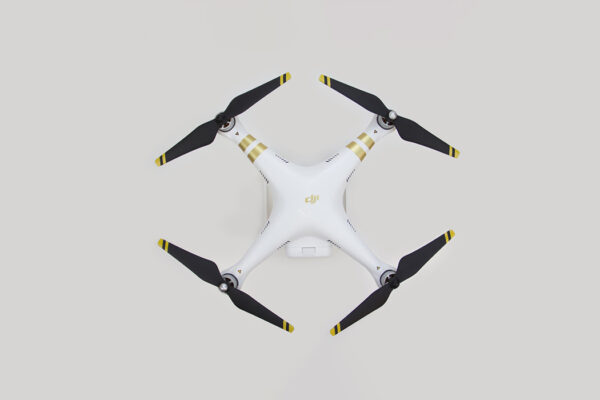Robot Wars
Robot Wars is a British TV game show that was originally transmitted from 1998 to 2004, and was revived to continue for three more series in 2016. The concept of Robot Wars originated from a US based competition for robot combat that lasted from 1994 until 1997. As well as two Robot Wars Intense series and the one-off Robot Wars Revealed series, the show ran for ten UK series. Several Robot Wars international series were also made.
The show was first shown on BBC Two on Friday nights for the first four episodes, switching to BBC Choice on weekday evenings for the fifth and sixth series, and all Extreme series, with all four series being repeated on BBC Two on their usual Friday nights soon after the initial broadcast. The show switched to Five for the seventh series and was shown on Sunday evenings. Once again, the rebooted Robot Wars series aired on BBC Two, this time on a late-peak Sunday evening time slot with repeats in the UK the next Monday night, and in Northern Ireland the following Wednesday night, later screening in America on the Science Channel in August 2018
Both Robot Wars Extreme series were repeated on Dave’s digital channel between 2010 and 2011 and were repeated on the Challenge from November 2015 and January 2016 respectively. The Second Wars also had a repeat run on the Challenge in May/June 2014, before the Challenge began showing the replays of the Series 5 in November 2015, the Series 6 in January 2016 and the Series 7 in March H2 also started to repeat Series 3 and 4 in January 2016.
Robot Fighting
Robot combat is a mode of robot competition in which custom-built machines fight against each other by different methods. Generally, the machines were remote-controlled vehicles rather than autonomous robots.
Robot combat competitions have been organized in television series, including Robot Wars in the United Kingdom and Battlebots in the United States. These shows were initially broadcast in the late 1990s to the early 2000s and experienced revivals in the mid-2010s. As well as televised competitions, smaller robot combat events are being staged for live audiences such as those organized by the Robot Fighting League.
Robot builders are generally hobbyists, and the complexity and cost of their machines can vary considerably. Robot combat uses weight classes, with the heaviest robots capable of exerting more power and destructive capabilities. The rules of competition are designed to protect the safety of builders, operators and spectators, while at the same time providing for an entertaining spectacle. In general, robot combat arenas are surrounded by a bulletproof screen.
Competitor robots come in a variety of designs, with different strategies for winning battles. Robot designs typically include weapons for attacking opponents, such as axes, hammers, flippers and spinning devices. Rules almost always prohibit gun-like weapons as well as other strategies that are not conducive to the safety and enjoyment of participants and spectators.
Best University to study Robotics Classes?
Carnegie-Mellon University
The Robotics Institute at Carnegie Mellon University was established in 1979 to conduct basic and applied research in robotics technologies. This university offers degree in M.S. in Robotic Systems Development & the MRSD combines technical skills and engineering with an emphasis on business and project management. The benefit of pursuing this degree is that an individual can work in the commercial sector as well as in marketing and product development.
Graduate Tuition & Fees: $41, 371/yr
Acceptance rate: 13.7% (2016)
Georgia Institute of Technology
Georgia Institute of Technology is undoubtedly one of the top colleges in the United States. The vision of this university is improve the human condition through advanced science and technology. M.S. in Computer Science; Computational Perception & Robotics is offered by this university, which will teach Robot Intelligence which include Planning, Machine Learning, and Computational Photography.
Graduate Tuition & Fees: $22, 854/yr
Acceptance rate: 25% (2016)
Massachusetts Institute of Technology
It offers a graduate program in Electrical Engineering Computer Science – Artificial Intelligence Research Area. Under it, there are several laboratories, institutes, and research groups; The Computer Science and Artificial Intelligence Laboratory (CSAIL) is the largest research center at MIT, more than 1, 000 members, 100 principle investigators, and approximately 50 research groups are the part of CSAIL.
Graduate Tuition & Fees: $49, 272/yr
Acceptance rate: 7.9% (2016)
Johns Hopkins University
Students who are looking for a Robotics MSE and Robotics and Computer-Integrated Surgery degree should consider Johns Hopkins University. Laboratory for Computational Sensing and Robotics (LCSR) is a academic center for engineering, research and development. The idea of this university is to share knowledge and encourage discoveries so that it makes the world a better place.
Graduate Tuition & Fees: $50, 510/yr
Acceptance rate: 11.4% (2016)
University of Pennsylvania
University of Pennsylvania serves Undergraduate and Master’s Degree in Robotics (ROBO). General robotics, automation, sensing, and perception (GRASP) laboratory is an academic and research center within the School of Engineering and Applied Sciences at the University of Pennsylvania.
Graduate Tuition & Fees: $34, 268/yr
Acceptance rate: 9.4% (2016)





